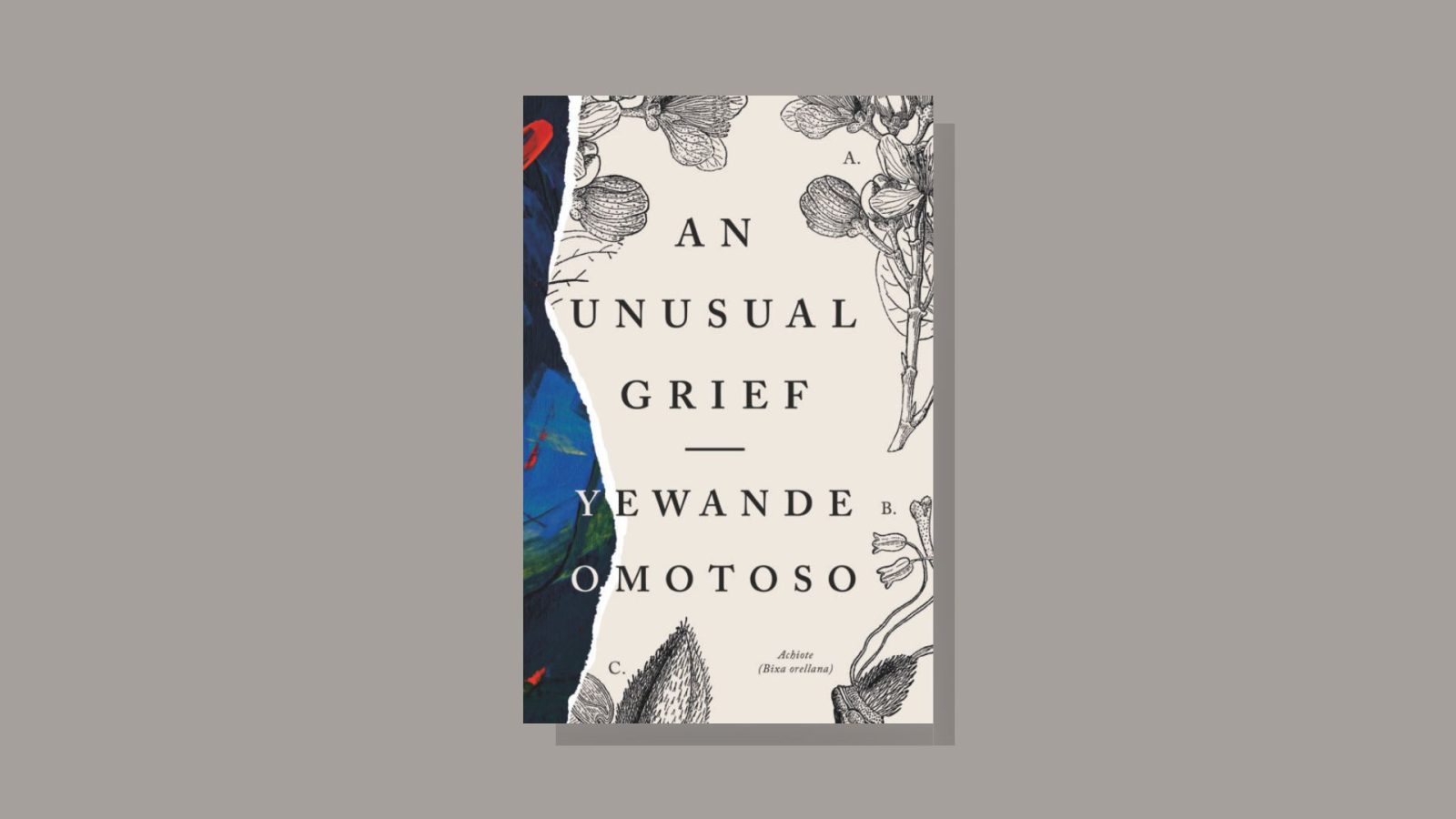An Unusual Grief is a sensitive and tender novel about the peculiar negotiation of grief and its many corollaries.
Chimezie Chika
Yewande Omotoso’s third novel, An Unusual Grief, longlisted for the 2025 NLNG Nigeria Prize for Literature, begins with an arrival and ends with another kind of arrival. Mojisola Owolabi, a woman who has spent most of her marital life as a housewife, arrives at her recently deceased daughter’s apartment in Johannesburg from Cape Town.
Pages in, we learn that the daughter, Yinka, an artist, had died by suicide, which complicates matters even further. This part of the novel then takes a slightly different route of a gradually accreting whydunit. Amidst the loosening seams of her marriage, Mojisola snoops around her daughter’s life, sleuths her haunts, and assumes her identity, in a bid to get to the root of, not just who her daughter was, but also her own perennial anxieties.
Admittedly, the subject of grief—in and of itself—can sometimes appear too grim or morbid to put oneself through, even through the secondary conduit of reading. In Yewande Omotoso’s hand, however, grief becomes a sublime exploration of human frailty, vulnerability, and the things that sever or stitch human relationships together. In a novel that reveals progressive layers of emotions, grief here becomes an avenue for acute and penetrating insights into how we live and experience life.

While we might say that An Unusual Grief is a tightly told, controlled, and uncomplicated story about a single emotion, it is also far more complex than this. Almost as soon as we get into the novel, we see that there is nothing normal about the way Mojisola approaches grief. But Mojisola had been formed by the most mentally stifling realities, most notably being raised by a fiercely religious woman, the result of which eventually coalesces into a woman who unwittingly finds herself estranged from her daughter.
This less-than-ideal relationship with her own daughter plunges Mojisola in and out of mental turmoil while rummaging through memories of her life. From Mojisola’s life and upbringing, we get the affirmation that many of the patterns of behaviour and values people have are often products of the nurturing and social conditioning structures they passed through. Nothing is ever independent in human behaviour; there is a causation, a trace somewhere. In a sense, this is also the premise of An Unusual Grief.
Grief is a much-remarked, much-expressed, yet much-understated human emotion, but it is also one whose presence lurks at the doors of most human activity. An Unusual Grief excavates the different ways in which we experience trauma, from childhood (as unknown weights parents heap on their children) to adulthood (as postpartum depression, and others), and the gradual or immediate tolls they take. Mojisola would, in light of this, realise the unacknowledged similarities she has with her daughter.
In such a profoundly grim story, Omotoso’s hand is subtle. Thus, we get a dose of humour in many instances, Mojisola’s brief liaison with D-Man being one. Pleasurable moments come in the manner in which the novel is peppered with small and constant revelations, the slippages that sometimes occur in the search for solace.
As a novelist, Yewande Omotoso is an acute observer of human behavior. She particularly excels at capturing the little gestures in conversation that speak volumes about human behavior. One such example is Zelda’s withholding of Yinka’s cat and the exchange around it..

In her sharply drawn characters—in their alert, humane, vulnerable, and surprising ways—Omotoso repeatedly shows us the peculiar ways in which we mourn those we love—and the baggage that seems to determine the nature of the mourning. Of great interest here is the unlikely yet astonishingly layered relationship between Mojisola and Zelda, her daughter’s erstwhile landlady, who becomes her landlady.
The careful calibration of these women’s lives is one of the great pleasures of this novel. One constantly feels that only a woman could have written about such a relationship in the manner in which it was.
There is a poignant image in the novel, one of the most affecting I have read in recent fiction, of Mojisola telling her husband to leave the house as a prelude to a divorce, but he kept returning on different days, either saying he forgot a cuff link, a belt, or some jewelry, because he left in a haste. But we can see clearly, as Mojisola also saw, that what he forgot, which kept bringing him back to his matrimonial home, was not any of the limitless number of objects he claimed he wanted to pick up, but her, Mojisola, his wife.
In another metaphor, the young couple, after a conventional wedding night, wakes up to a dead snake in front of their door. It appears to reference the centrality of strangeness—the anomalous, the unusual, if you will—in the relationships that develops or fizzles between the characters in the novel: landlady and tenant bonding over a prohibited substance, a woman who consciously seeks out and attends the funerals of strangers, a husband caught pants down mid-fellatio with his assistant by his own kink-leaning daughter.
Omotoso is especially at her best when she describes the gradual changes that occur in relationships—the transmutation from hatred to love, or vice versa, which is the most common attribute of the interactions between people in the novel. In the poetry, the progression from grief to panegyric is well-documented. In Yewande Omotoso’s An Unusual Affair, grief eventually transmutes to a longing kind that emanates from a knowledge of the past.

There is much accomplished writing to appreciate here; cascades of vivid, insightful prose all hinge on Omotosho’s ability to observe the tips and turns of the human mind closely: “…a pain hit but not only pain. Also, a sensation they have not yet named, a thing that wakes all the senses, the sinews, all the jelly in the life-giving body, wakes it up and says, ‘Let’s go.’”
There are many startling observations, too, of the most intense or baser human acts. This is how Mojisola describes orgasm, for instance: “I experienced immense pleasure, deep within and all around me. As if my pleasure could somehow change the molecules of air around my physical body”.
An Unusual Grief is a sensitive and tender novel about the peculiar negotiation of grief and its many corollaries. In every part of this book, there is something to treasure: an image, a memory, an observation, a metaphor, an ordinary yet profound encounter, a layered revelation. Omotoso has written an unforgettable story, a novel to savour for its yielding depths.
Chimezie Chika is a staff writer at Afrocritik. His short stories and essays have appeared in or forthcoming from, amongst other places, The Weganda Review, The Republic, The Iowa Review, Terrain.org, Isele Magazine, Lolwe, Fahmidan Journal, Efiko Magazine, Dappled Things, and Channel Magazine. He is the fiction editor of Ngiga Review. His interests range from culture, history, to art, literature, and the environment. You can find him on X @chimeziechika1



